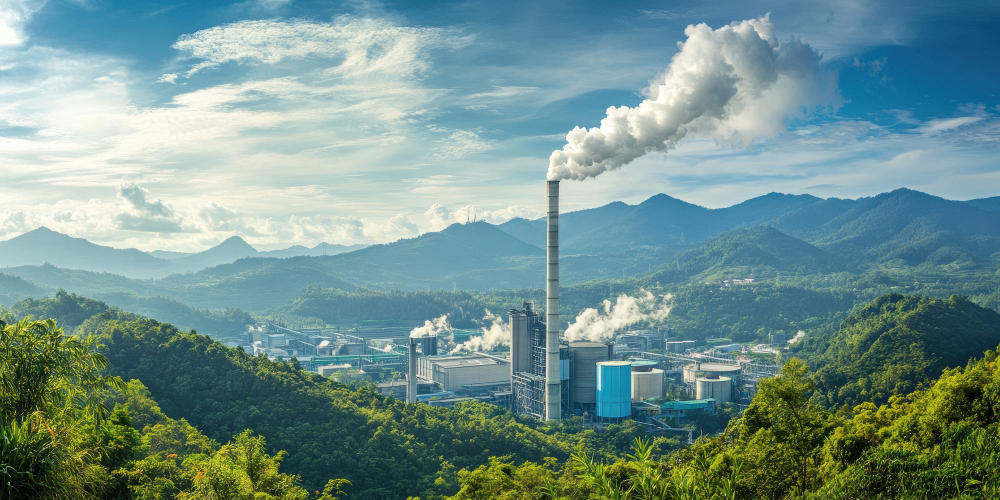
Product walkthrough, trial, POCs, enterprise offering, support and more. Speak with one of our specialists.


Product walkthrough, trial, POCs, enterprise offering, support and more. Speak with one of our specialists.

Policy and industry News

Indonesia is preparing to become one of Asia's major powers in carbon capture and storage technology, known as Carbon Capture and Storage (CCS). This technology is a crucial part of the national strategy to reduce greenhouse gas emissions and achieve the government’s targets in the Nationally Determined Contribution (NDC) and Net-Zero Emissions by 2060. Not only that, CCS also opens up significant opportunities for green economic growth in the country!
Why is CCS important? Because sectors such as heavy industries and coal-based power plants are extremely difficult to decarbonize through energy transition alone. This is where CCS plays its role: capturing carbon before it is released into the atmosphere and storing it safely underground.
The government is also taking action. There is the Minister of Energy and Mineral Resources Regulation No.2 of 2023 that regulates the technical and business aspects of CCS, and Presidential Regulation No.14 of 2024, which goes further by covering exploration to operational implementation. This means that from a regulatory standpoint, Indonesia already has a solid foundation to seriously implement this technology.
Geologically, Indonesia has underground structures that are highly suitable for long-term carbon storage. It is even estimated that the country can store up to 700 gigatons of CO₂—enough to offset domestic emissions for more than 1,000 years! In addition, Indonesia has skilled workers and extensive experience in the energy sector. Quite complete, right?
No wonder Lemigas, under the Ministry of Energy and Mineral Resources, mentioned that there are already 15 CCS/CCUS projects currently under development. These projects are spread across various regions, ranging from Clean Ammonia in Central Sulawesi, Repsol Sakakemang, BP Tangguh, Pertamina Sukowati, Aceh Carbon Hub, to ExxonMobil and Pertamina Jatibarang.
According to Deputy Elen Setiadi from the Coordinating Ministry for Economic Affairs, CCS is not only about reducing emissions but also about creating new jobs and improving the competitiveness of domestic industries. This means it is not just an environmental project, but also an investment in the future!
One of the most notable CCS projects is in Sunda Asri, a strategic area between the Sunda Strait and the Java Sea. Here, the Indonesian Government together with ExxonMobil will develop a large-scale project worth USD 15 billion. Its main focus is to build a world-class petrochemical complex as well as CCS infrastructure capable of storing up to three million tons of CO₂ under the seabed.
This project is projected to cut CO₂ emissions by up to 90% and become part of the national downstream agenda promoted by President Prabowo. The hope is that it will be a game-changer in strengthening basic industries and driving Indonesia towards a low-carbon economy.
According to Secretary of the Coordinating Ministry for Economic Affairs, Susiwijono Moegiarso, the Sunda Asri project is still in the site study stage, but its potential is enormous. If everything goes as planned, the investment value could grow far beyond USD 15 billion!
We are moving towards a greener, cleaner, and more sustainable future. Technologies like CCS are no longer distant concepts—they are essential tools that will be part of Indonesia’s climate change solutions.
Now is the time to take part! Support clean energy, learn about future technologies like CCS, and be the generation ready to lead change. Because Indonesia’s future is also in our hands!






















Jejakin’s green programs combine high-tech monitoring, biodiversity restoration, and community-led initiatives to deliver powerful, sustainable change across ecosystems.








